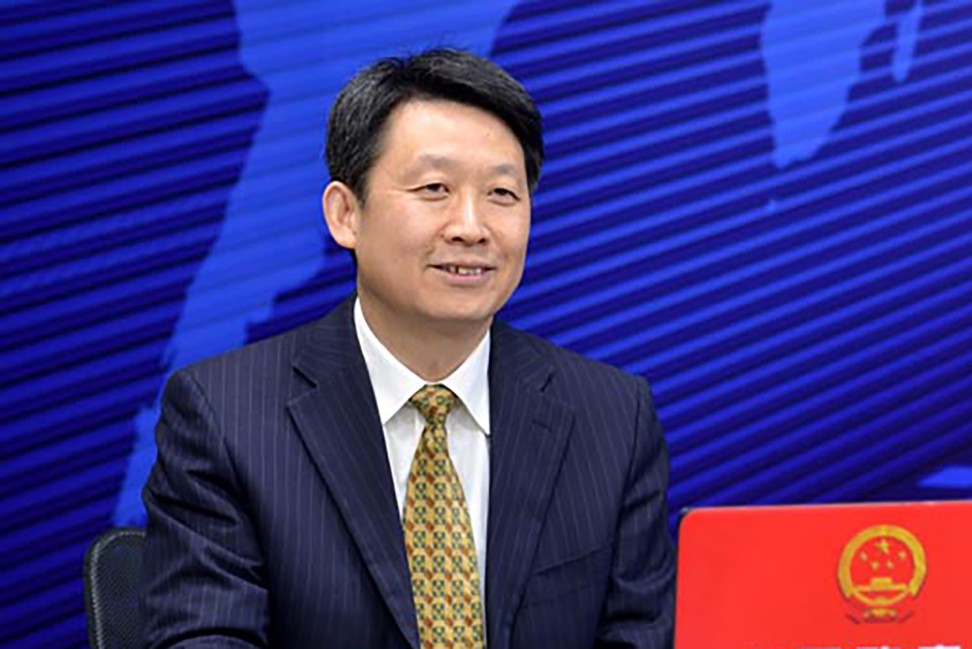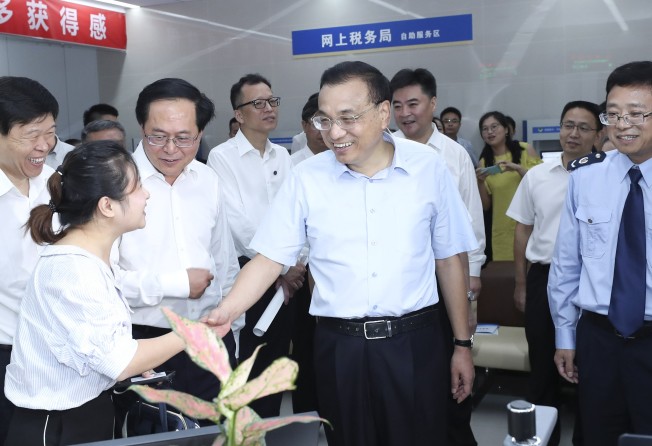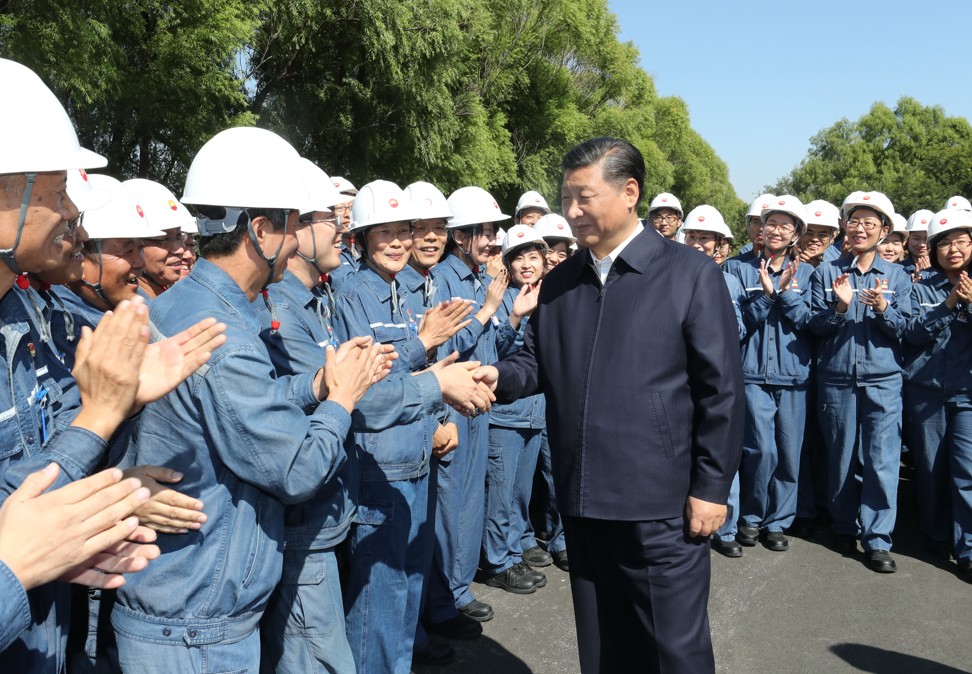
China welcomes fair competition, does not favour state companies over private sector, foreign firms, government adviser says
Modern state-owned enterprises are ‘market driven … don’t represent the government’, vice-president of influential think tank says

It is China’s policy to treat foreign firms, private domestic companies and state-owned enterprises equitably, a senior official from a government think tank said on Sunday, while adding that Beijing will continue to strengthen the public sector despite criticism at home and abroad.
“State-owned firms do a great job [in terms of contributing to the economy],” Long Guoqiang, vice-president of the Development Research Centre of the State Council said, adding that with the help of reforms their potential could be “unleashed”.
His comments echoed remarks made by Chinese President Xi Jinping on Thursday, who said the government would continue to strengthen state-owned enterprises (SOE) while also supporting the private sector.
Long said that supporting SOEs did not mean the government would attach less value to private firms or foreign businesses.
“It’s all about fair competition, developing [the market] together,” he said.
Chinese Premier Li Keqiang last week told representatives of foreign firms and from China’s public and private sectors that it was a priority for the government to provide a level playing field for all parties, state broadcaster CCTV reported on Saturday.
Long, who advises the government on economic policy, said there was a general misunderstanding overseas of how China’s SOEs operate.
“The US thinks state firms represent the government,” he said. “But since China began its reforms, we’ve emphasised that state companies are market driven, they don’t represent the government.”
While Beijing regards state firms as central to its technological and economic development, the United States and other Western nations consider the subsidies SEOs receive an unfair advantage that should be stopped in the interests of fair play.
On Tuesday, the United States Trade Representative issued a joint statement following a meeting of trade ministers from the US, Japan and the European Union which said they opposed the “non-market” trade practices of third-party countries.
Although the statement did not mention China by name, the ministers complained, among other things, of SOEs receiving preferential treatment in the form of low-cost loans from state-owned banks and subsidies, which caused and supported overcapacity.
On the domestic front there are also growing doubts about the ruling Communist Party’s commitment to the private sector, whose growth has been key to China becoming the world’s second-largest economy.
Private firms contribute 60 per cent of the country’s gross domestic product and account for 80 per cent of all jobs in urban areas. But as SOEs become bigger and stronger, they are having an increasingly tough time.
A controversial essay that circulated online recently argued that China’s private sector had “completed its historic mission” in assisting the leap forward of SOEs and should now be phased out.
Both Xi and Li left Beijing for field visits late last week as the economic fallout from the trade war with the United States grows.
While Xi headed to the northeast – a key agricultural region and former industrial base now referred to as the rust belt – Li went east to Zhejiang province, where entrepreneurs and private enterprise have thrived.
During his tour on Thursday and Friday, Li pledged to reduce taxes and cut the cost of corporate financing, especially for small private enterprises, the government said in a statement issued late on Saturday.
At a meeting with businesspeople on Friday in Taizhou, a representative of a private company complained to Li of Chinese banks drawing an “invisible line” between private and state-owned firms, according to a separate government press release.
“[Banks] have little responsibility if a loan to an SOE goes bad,” the anonymous businessman was quoted as saying. “But [they] would be in huge trouble if there were issues with a loan to a private firm, and so they don’t want to lend to private companies.”
An advisory committee to the People’s Bank of China said last week that the central bank would improve financing and credit structures, and “strive to provide financial support to private firms that matches their contribution to economic and social development”.

